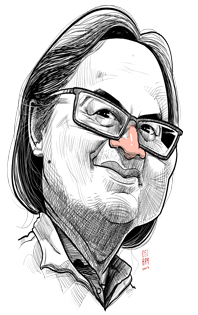Noer Fauzi Rachman
Kim Malone
Ekonom dan ilmuan sosial dunia ketiga nicaya mengenal karya Hernando De Soto. De Soto saat ini adalah konsultan dan konseptor ternama kelas wahid pada skala dunia dari banyak badan pembangunan/dana internasional seperti Bank Dunia, Inter-American Development Bank, Asian Development Bank, Komisi Eropa, USAID hingga belum lama ini, ia diangkat sebagai ketua kehormatan dari the High Level Commission on Legal Empowerment of the Poor (HLCLEP), yang merupakan badan bentukan antar-pemerintahan Negara-negara Nordic (Denmark, Finland, Iceland, Norwagia and Sweden), yang didukung oleh pemerintah Canada, Egypt, Guatemala, Tanzania, the United Kingdom, dan badan internasional antara lain UN Economic Commission for Europe (UNECE). De Soto telah mendapatkan puji-pujian dari berbagai orang ternama di dunia, misalnya, George H.W. Bush, Bill Clinton, Hamid Karzai, Alberto Fujimori, Milton Friedman, Javier Pérez de Cuéllar, dll. The Institute for Liberty and Democracy (ILD, lembaga penelitiannya de Soto) juga mendapatkan penghargaan istemewa dari lebih dari 20 universitas, badan pembangunan internasional, hingga perusahaan-perusahaan transnasional. Sejarah, karya-karya dan berbagai puja-puji ini dapat ditemukan dalam situs maya ILD (http://www.ild.org.pe)



